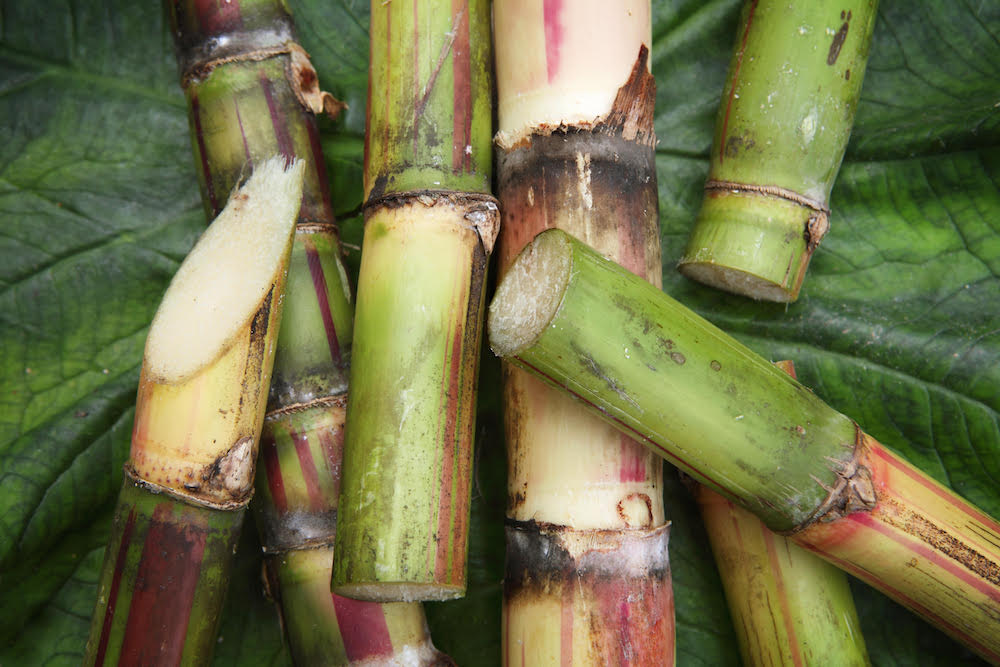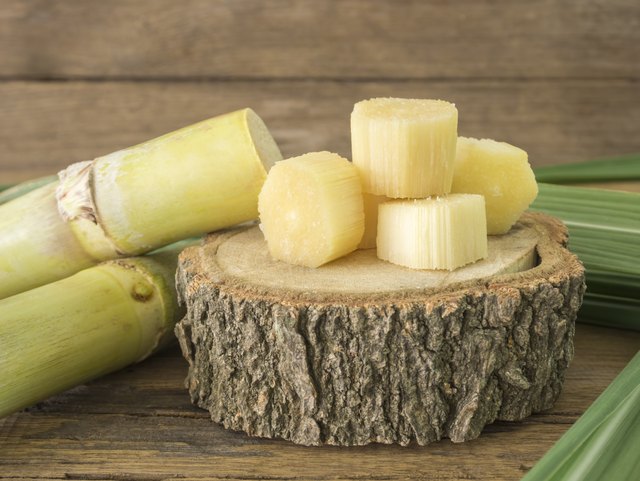The Environmental Impact of Growing Sugar and Cane in Various Regions
The Environmental Impact of Growing Sugar and Cane in Various Regions
Blog Article
Why Cane Sugar Handling Chemicals Are Critical for Modern Sugar Refining
The duty of walking stick sugar processing chemicals in contemporary sugar refining can not be overemphasized, as they are essential to boosting both the efficiency of removal and the total quality of the last product. Representatives such as phosphoric acid and specific flocculants are used to remove pollutants, leading to sugar that not just fulfills consumer assumptions however also follows sector requirements. The implications of these chemicals expand past high quality, touching upon market characteristics and ecological factors to consider. sugar and cane. This raises important inquiries about the sustainability of such practices and their impact on the future of sugar production.
Function of Handling Chemicals
The effectiveness of walking stick sugar processing pivots significantly on the tactical application of processing chemicals. These chemicals play a crucial function in improving the performance and quality of sugar extraction and refining. From the first phases of juice extraction to the last purification actions, processing chemicals promote different essential procedures.
In the extraction stage, chemicals such as phosphoric acid and calcium hydroxide are used to maximize the explanation process, assisting to remove contaminations and suspended solids from the cane juice. This not only boosts the return but additionally ensures the clearness of the final item. In addition, agents like flocculants aid in the quick settling of pollutants, therefore streamlining the general procedure.
As the handling breakthroughs, chemicals are utilized in decolorization and formation stages. Triggered carbon and ion exchange resins offer to get rid of shade and smell, making sure that the polished sugar meets consumer quality requirements. Ultimately, the duty of processing chemicals prolongs beyond functional efficiency; they substantially affect the sensory qualities of the end product, adding to market competitiveness. Hence, the thorough choice and application of these chemicals are important for accomplishing ideal outcomes in cane sugar processing.
Secret Sorts Of Chemicals
Walking cane sugar handling depends on a range of vital chemicals that promote each phase of production. These chemicals play essential roles in making clear, bleaching, and detoxifying the sugar extracted from walking cane.
One main classification of chemicals includes flocculants, such as polyacrylamide, which help in the information procedure by promoting the gathering and settling of pollutants. Furthermore, calcium hydroxide is typically employed to counteract acidity and help in the removal of non-sugar elements.
Whitening representatives, such as triggered carbon and sulfur dioxide, are utilized to decolorize the syrup, leading to a more clear end product. These chemicals assist eliminate color substances that might influence the sugar's appearance and bankability.
Furthermore, phosphoric acid works as a pH regulatory authority during the handling stages, guaranteeing optimal problems for the enzymatic activities associated with sugar extraction and purification.
Various other vital agents consist of edta (ethylenediaminetetraacetic acid), which chelates steel ions that can catalyze unfavorable responses, and sodium hydroxide, which helps in pH control throughout the refining procedure. Collectively, these chemicals boost effectiveness and make sure a top quality cane sugar item.
Benefits for Sugar Quality
Frequently forgotten, using certain processing chemicals substantially enhances the overall quality of cane sugar. These chemicals play a crucial duty in refining procedures, making sure that the end product satisfies strict industry standards for pureness next page and preference.

Furthermore, refining chemicals assist in attaining a consistent granulation and structure, which are essential for customer approval. By managing the condensation process, these chemicals guarantee that the sugar crystals create uniformly, resulting in an extra enticing item that liquifies well in various applications.
In addition, the usage of these chemicals can enhance the rack life of walking cane sugar by minimizing dampness absorption and microbial growth. Overall, the calculated application of processing chemicals is crucial for supplying premium cane sugar that fulfills customer expectations and sector needs.
Environmental Effect Factors To Consider

Additionally, the energy-intensive nature of sugar refining, worsened by chemical usage, often causes enhanced carbon exhausts. This adds to environment modification and elevates issues regarding the sustainability of existing refining practices. Additionally, the sourcing of these chemicals may include methods that intimidate biodiversity, such as monoculture farming, which minimizes the durability of farming environments.

To minimize these impacts, sugar refiners are progressively discovering lasting choices and taking on best techniques that reduce chemical use. Implementing extensive ecological management systems can help make certain that the refining process straightens with environmental requirements and promotes biodiversity. Inevitably, a balanced approach that prioritizes both sugar quality and environmental stewardship is essential for the long-lasting practicality of the sugar sector.
Future Trends in Refining
As the sugar market faces the ecological challenges related to traditional refining approaches, innovative strategies are emerging to enhance both performance and sustainability. One significant trend is the adoption of eco-friendly chemistry principles, which focus on the use of safe, biodegradable processing chemicals. This shift not only minimizes ecological effect however additionally addresses customer demand for cleaner production techniques.
One more encouraging development is the application of advanced filtering technologies, such as membrane splitting up and adsorption procedures. These strategies enhance the clearness and quality of the sugar while lowering the volume of wastewater produced during refining. Furthermore, the combination of digital technologies, consisting of IoT and AI, YOURURL.com is transforming functional performance by making it possible for real-time monitoring and predictive maintenance, therefore reducing resource waste.
Additionally, the use of byproducts from sugar refining, such as bagasse and molasses, is acquiring grip. These materials can be transformed right into biofuels or value-added products, adding to a circular economic situation within the market. Jointly, these patterns signal a change towards more sustainable techniques that not only improve operational performance however also align with global sustainability goals, guaranteeing the future stability of sugar refining.
Final Thought
Walking cane sugar processing chemicals are necessary in modern sugar refining, considerably improving the efficiency and quality of sugar extraction. The tactical usage of these chemicals not only boosts the purity and flavor of the last item yet likewise makes sure regular condensation and appearance. As the sector increasingly prioritizes sustainability, the fostering of environmentally-friendly processing representatives is most likely to shape future patterns in refining, eventually bring about higher top quality products and expanded rack life for consumers.

Inevitably, a well balanced technique that focuses on both sugar quality and ecological stewardship is important for the long-term practicality of the sugar sector.
Walking cane sugar processing chemicals are necessary in modern-day sugar refining, considerably boosting the performance and top quality of sugar removal.
Report this page